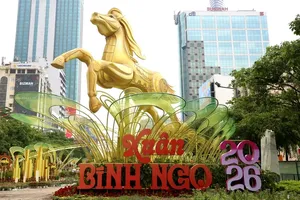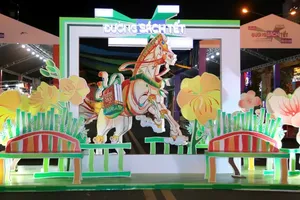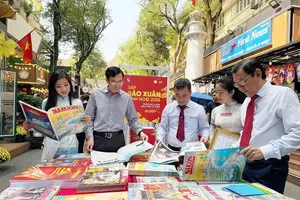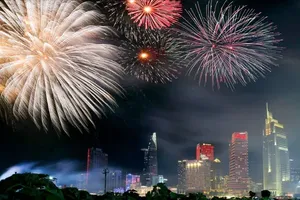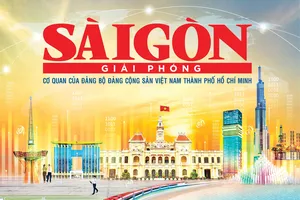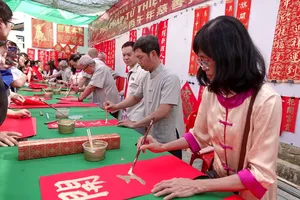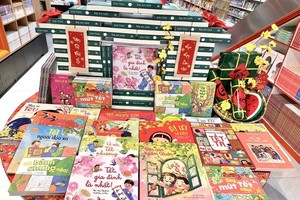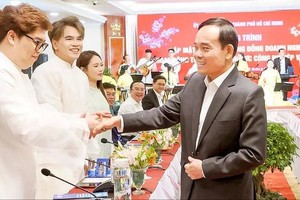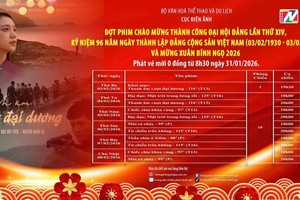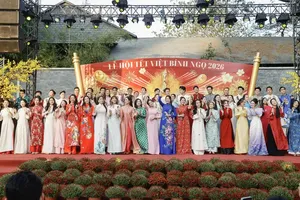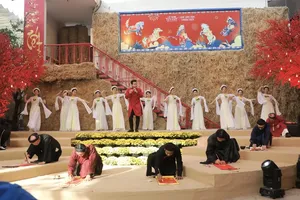Despite its abundance and rich history, Vietnamese literature is still unfamiliar to most foreign readers. The problem lies not with the quality of the country’s literary works or a lack of prolific authors, however. Instead, experts say Vietnam simply needs to launch a better marketing campaign to introduce the world to its diverse collection of writing.
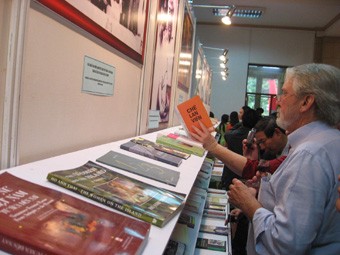
A group of translators, writers and scholars made the suggestion during a recent conference on boosting Vietnamese literature abroad.
A hidden treasure
Conference participants said that for half a century, efforts have been made to present Vietnamese literature to foreigners, but only a small number of books have actually been introduced to other countries.
Such works include translated versions of famous books like Ho Chi Minh’s prison diaries; a collection of novels by authors To Hoai and Nam Cao; and poetry by Ho Xuan Huong, Nguyen Binh, Che Lan Vien, and Nguyen Dinh Thi. Of these, however, only a small number of translated versions have been distributed in select areas.
Professor Ahn Chung Hwan from the Republic of Korea said that in his country, three Vietnamese masterpieces including “Uc Trai Thi Tap” (Collection of poems by Uc Trai -Nguyen Trai), “Kieu” by Nguyen Du, and “Diary in Prison" by Ho Chi Minh have been translated into Korean.
Vietnamese ancient literature has been attractive to Korean translators because of the similarities in culture, ideals and style, he added.
According to Prof. Hwan, even ancient books like “Chinh Phu Ngam,” “Linh Nam Chich Quai,” and “Truyen Ky Man Luc,” which are relatively unknown in Vietnam, have been introduced in the RoK.
Nevertheless, this is just a fraction of the plethora of valuable yet unknown Vietnamese literature, he said.
Better promotion strategies needed
Professor Chuc Nguong Tu from China said that Vietnamese literature is unfamiliar to Chinese people, but not because it lacks quality.
“Vietnamese literature is unique and has modernized over a long period. It is rich, diverse, and not inferior to others,” he said.
However, when a work is translated, it must be done in such a way as to appeal to the other culture, said Prof. Tu.
“For example, I have translated ‘Chi Pheo’ (named after the main characteristic) by Nam Cao and ‘Đat nuoc dung len’ (Country Rises Up) by Nguyen Ngoc into Chinese, but they cannot be published. It does not mean they are not good, and my translations are not bad either. It is because publishers cannot find readers,” he said.
“When I translated ‘Mr. Consultant’ into Chinese, I changed the name of the book to ‘Top Secret: the largest spy case in the Vietnam War,” and it then became attractive to Chinese readers,” said Prof. Tu.
“The Vietnamese Government should set up a fund to finance Vietnamese literary translations, aimed at sponsoring translators, publishers and writers to introduce more Vietnamese literature to the world,” he added.
In addition to the fund, the Vietnamese Government should establish an award to praise literary translators and seek closer ties between Vietnamese and Chinese writer-translators, Prof. Tu said.
To introduce Vietnamese literary works published in Chinese, books should be sold at tourist destinations where Chinese travelers often visit, like Ha Long Bay, he added.
Nguyen Van Tho, a Vietnamese writer-translator living in Germany, said Vietnam could learn how to introduce its literature abroad by following the examples of other embassies.
These organizations have funds to sponsor the translation and publishing of literary works from their countries, and they know how to attract Vietnamese readers, he said.
If Vietnamese embassies take responsibility for promoting the country’s literature and plan good strategies to do so, the situation could improve dramatically, he said.
“This is an official way [of disseminating local literature]. In another informal way, every writer, poet and translator should be a cultural ambassador while traveling abroad,” Prof. Tu added.
Readers crave authentic Vietnamese content
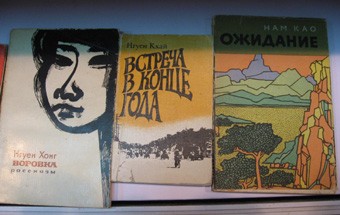
Lady Borton, who has translated works by Ho Chi Minh for decades, said that publishers around the world prioritize books with the best financial potential. They want to publish best-sellers, she added.
“Accordingly, writers should know what today’s readers are looking for. Readers around the world certainly don’t want the same, tired books they have already read. They want something new and different,” said Ms. Borton.
“Vietnamese authors should thus write so that readers see Vietnam in their works,” she said.
Other translators agreed with Ms. Borton that people are looking for fresh and interesting books. Foreign readers would therefore be attracted to Vietnamese literature, which offers a unique perspective about a different culture, they said.
Editor Anna Gustafsson Chen of publisher Tranan, which distributes foreign literary works for children in Sweden, said that many countries already have an overwhelming number of quality books. Such nations, therefore, have no need for literary works in other languages unless they can offer something original.
What we look for are works that promote the exploration and enjoyment of different cultures in the world, she said.
Ms. Chen said that two Vietnamese books for children including “De Men Phieu Luu Ky” (The Adventure of Cricket) by To Hoai and “Vua Nham Mat Vua Mo Cua So” (Opening Window While Closing Eyes) by Nguyen Ngoc Thuan have been warmly welcomed in Sweden.
During the conference, 50 foreign translators from Russia, the US, India, the RoK, France, Hungary, the Czech Republic and China among others, were awarded with the Campaign Medal for Vietnamese Literature and Art.
The Association of Vietnamese writers also signed cooperation agreements with the US-based William Joiner Center; India-Vietnam Friendship Solidarity Association; the friendship associations of Laos-Vietnam and Russia -Vietnam; Hungary-based Diary Magazine; Philippines’ Aria and Swedish Tranan Publisher; translators Ahn Chung Hwan from the RoK, Dashtvel form Mongolia, and Chuc Nguong Tu from China.

